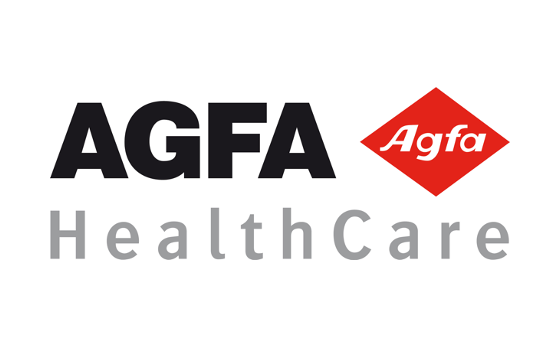 Leeds Teaching Hospitals NHS Trust (LTHT) has successfully implemented Agfa HealthCare's Enterprise Imaging (EI) solution, a unified platform complete with clinical tools, reporting and a workflow engine that will help the LTHT maximise its productivity and collaborate with neighbouring Trusts.
Leeds Teaching Hospitals NHS Trust (LTHT) has successfully implemented Agfa HealthCare's Enterprise Imaging (EI) solution, a unified platform complete with clinical tools, reporting and a workflow engine that will help the LTHT maximise its productivity and collaborate with neighbouring Trusts.
EI provides a single storage solution for the LTHT’s radiological images, facilitating mobile working so that clinicians can access studies and reports from anywhere in the hospital or on their home workstations, in real-time.
The Agfa HealthCare EI solution is expected to help streamline the clinical pathway for reporting radiology images, enabling consultants to address the Trust’s capacity gap, which has been exacerbated by the increased demand on services following the COVID-19 pandemic.
EI replaces Agfa HealthCare’s IMPAX solution, which had been in place at LTHT since 2003. The transition involved the migration of more than 9.5 million studies and training over 200 members of staff, using a combination of Agfa-led remote training, e-learning courses and guidance documentation, hosted on Health Education England’s Digital Learning Solutions platform.
Paul Jones, Chief Digital Information Officer at LTHT, said: "Leeds is one of the largest Trusts in the UK, providing care to over 1.5 million patients every year, many of whom have complex and urgent needs. Upgrading a major system like EI had to be very carefully planned to minimise any downtime since we’re dealing with several thousand examinations per day.
"EI has provided a much more stable infrastructure. We immediately noticed the productivity and efficiency savings made by having fully-integrated image viewing and reporting on a single platform with a modern interface."
The EI go-live also represents significant progress for the Yorkshire Imaging Collaborative (YIC), as it edges closer to creating a radiology image sharing network between eight sites across Yorkshire and the Humber.
The launch of the YIC in 2016 was a direct response to the falling numbers of radiologists and subsequent concerns about pressure on services, given the expected national shortfall of 43% by the end of 2024, predicted by the Royal College of Radiologists.
Together, the eight trusts, which cover a patient population of more than 3 million, will also benefit from Agfa HealthCare's XERO Exchange Network (XEN) - a tool built to allow images and reports to be shared across the region at any time. The Network promotes regional and local collaboration between clinicians, patients and other healthcare providers.
Fahmid Chowdhury, Clinical Director of Radiology at LTHT: "Agfa's EI solution will play an important part in our strategy to make radiology image sharing across the region a reality.
"A large part of the success of EI implementation has been clinical engagement and our partnership with Agfa, who helped train our colleagues and worked with us to tailor the system to meet the specific needs of the trust. Staff are already starting to realise the benefits of having a more stable unified platform for image viewing and reporting, with the potential for fast access to images and reports from regional hospital trusts and greater flexibility in how radiology reporting is delivered. It is hoped that this will eventually increase reporting capacity and reduce turn-around times while also minimising the number of examinations a patient needs, as well as the number of visits to the hospital. We’re really excited to work collaboratively with colleagues at Agfa and within the YIC to build further on these initial positive results."
Roberto Anello, Managing Director UK & Ireland, Agfa HealthCare: "Implementing the technology during the COVID-19 pandemic has had its challenges, but thankfully, through the commitment and effort of everyone involved, the project has been an overwhelming success.
"Leeds Hospitals is a prestigious teaching Trust with an extensive range of radiology requirements, so we’re very proud to have helped them achieve their digital ambitions for image sharing. It’s also fantastic to be one step closer to finalising the go-live plans across the YIC."
About Leeds Teaching Hospitals NHS Trust
Leeds Teaching Hospitals NHS Trust is one of the largest teaching hospitals in Europe, a regional and national centre for specialist treatment, a world renowned biomedical research facility, a leading clinical trials research unit and also the local hospital for the Leeds community.The Leeds Teaching Hospitals NHS Trust incorporates the Leeds General Infirmary, St James’s Hospital, Leeds Children’s Hospital, Wharfedale Hospital, Leeds Dental Institute and Seacroft Hospital.
We contribute to life in the Leeds region, not only by being one of the largest employers with more than 20,000 staff, but by supporting the health and well-being of the community and playing a leading role in research, education and innovation.
About Agfa-Gevaert
The Agfa-Gevaert Group develops, manufactures and distributes an extensive range of analogue and digital imaging systems and IT solutions, mainly for the printing industry and the healthcare sector, as well as for specific industrial applications.Agfa's headquarters and parent company are located in Mortsel, Belgium.